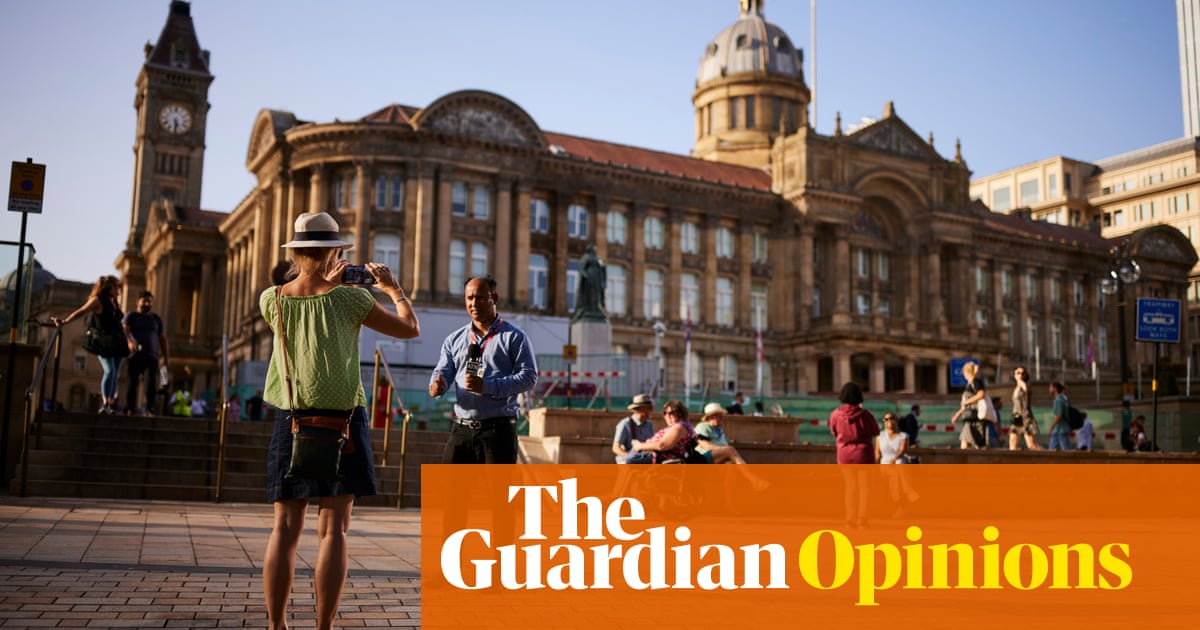
o enemy of Tory policy is as savage as a Johnson Tory. Enter Grant Shapps, transport secretary. His proposed reincarnation of British Railways (ridiculously with “Great” attached) ends one of the major failures of modern British government. He accuses the botched Conservative privatisation of British Rail in 1993 of leading to “fragmentation, confusion and overcomplication”. In truth what killed it was not Tory doctrine but a far more lethal ideology: Treasury control.
The principle of a privatised railway was sound. Private companies had given Victorian Britain the finest train service in the world. By the 20th century it was atrophying through duplication and monopoly, and was effectively nationalised in the second world war. In public ownership, British Rail seemed overtaken by the motor car and starved of investment for electrification. By the 1990s, privatisation seemed the best answer.
A battle royal took place over how. Should the railway revive the old private regional companies such as Great Western and LMS, or should it be split vertically between a track owner/operator and train service companies on short-term franchises, the latter much favoured by the Treasury. The Treasury won and in 1993 the railway was divided up. The result was early commercial success – journeys boomed – but operational disaster.
Within six years the infrastructure company, Railtrack, was bankrupt and had to be renationalised. But the private franchisees were left with no managerial control of their stations, track and signalling, control that was critical to running a co-ordinated service. Trains need instantaneous lines of decision and accountability, not legal contracts – and dependent profits – befuddling every line of command. Rumour had it that the user contract on Paddington station ran to 50 pages. Running costs per mile doubled and then trebled under privatisation, measured by the so-called Ford factor of the doyen of rail journalists, Roger Ford. The joke was that the nationalised railway took 40 civil servants to oversee, the privatised one took 400.
As demand rose with the post-2000 mobility boom, so did costs, fares and subsidies. Worse, the 2002 nationalisation of Network Rail subjected investment to constant political distortion. Total rail subsidy in 2019 was £6.5bn, with £5bn a year planned for future investment. However, an estimated £5bn a year must now be found for another 20 years to pay for just one wholly unnecessary line of track, HS2. For all Boris Johnson’s blather, the grim reality of this vanity project is that it will smother investment in the existing railway into the foreseeable future. It is the poison pill left by privatisation – HS2 is a private contractors’ bonanza – that will be a curse on GBR.
The fault was never privatisation as such. In the 1970s airlines, ports, car makers, phones and telecommunications were all run by state corporations. Few complain that they are now private. The problem lay where privatisation was bungled. By the time of the 2018 timetable fiasco that sparked the current crisis, each corner of the rail industry was able to blame another when anything went wrong. The rail regulator had time to calculate that lateness was 59.1% Network Rail’s fault. The then transport secretary, Chris Grayling, was reduced to standing at the dispatch box apologising for train cancellations as if he were the platform announcer at Crewe.
I strongly believe that had the old regionals been reborn as normal companies controlling their own assets they would have been a success. That is how hospitals and universities work. The nationalised railway operated best under the public corporation model invented by Labour’s Herbert Morrison in the 1940s. It was run at arm’s-length outside Whitehall control under an explicit remit. BR’s much-abused Dr Beeching was given a clear instruction – to end subsidy, switch from steam and slash capacity – and left to get on with it in the 1960s. He actually produced the most up-to-date railway in Europe. The reality is that structure in government may be boring but it matters.
Britain’s new GBR railway faces two titanic headaches: managing a possibly long-term slump in passengers, and watching its investment eaten alive by HS2. As for its structure, we are told it is to retain privately franchised “delivery companies” to operate the actual trains. This sounds ominously like the same split that lies at the root of the present chaos.
The issue is not profit but structure. Individual lines of route must be separately managed and in complete control of their fixed and running assets. That is the key to efficiency and corporate morale. As for Shapps, he should be restricted to one railway utterance per year, and his entire directorate should be hived off to the admirable Railway Museum at York.












